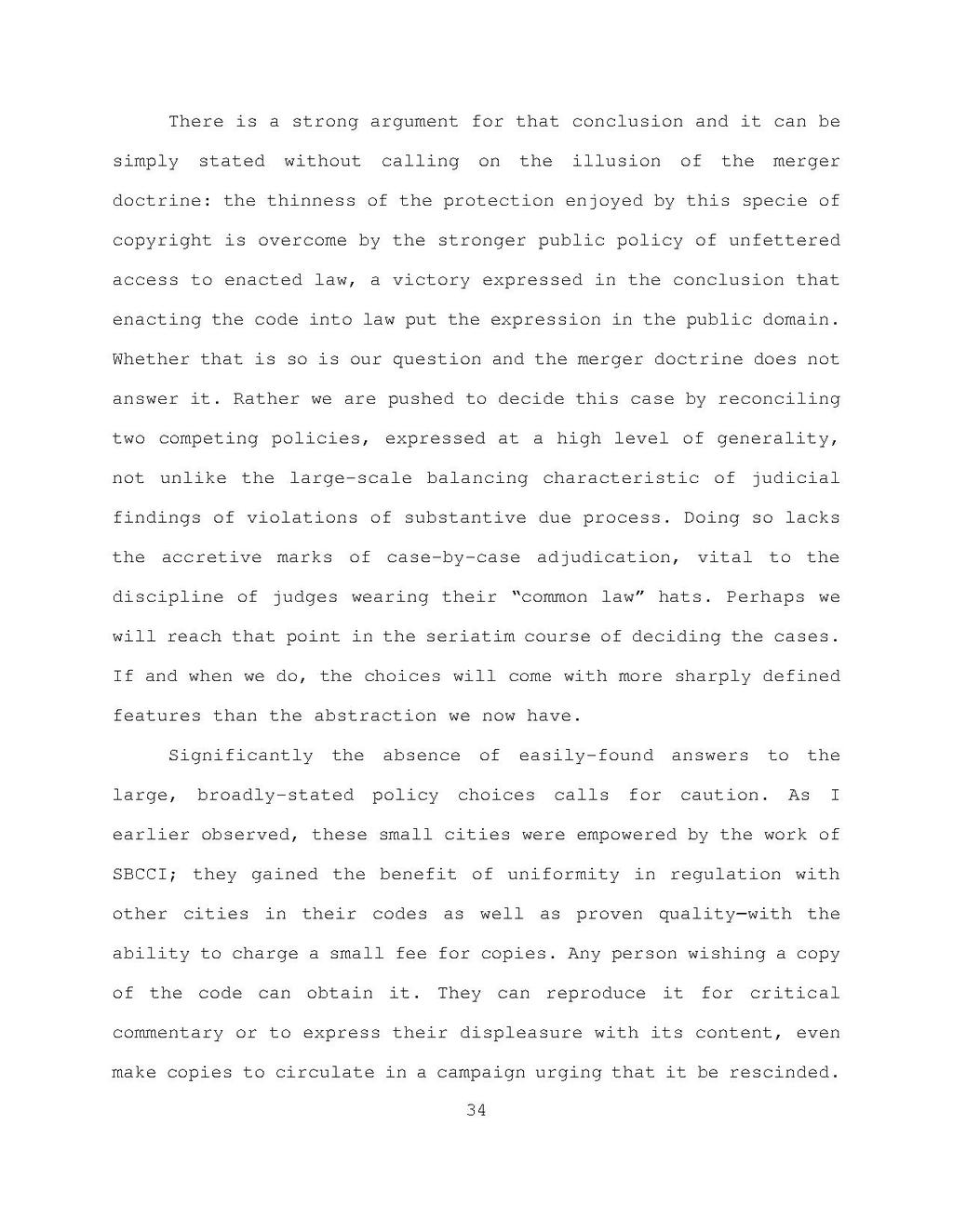There is a strong argument for that conclusion and it can be simply stated without calling on the illusion of the merger doctrine: the thinness of the protection enjoyed by this specie of copyright is overcome by the stronger public policy of unfettered access to enacted law, a victory expressed in the conclusion that enacting the code into law put the expression in the public domain. Whether that is so is our question and the merger doctrine does not answer it. Rather we are pushed to decide this case by reconciling two competing policies, expressed at a high level of generality, not unlike the large-scale balancing characteristic of judicial findings of violations of substantive due process. Doing so lacks the accretive marks of case-by-case adjudication, vital to the discipline of judges wearing their "common law" hats. Perhaps we will reach that point in the seriatim course of deciding the cases. If and when we do, the choices will come with more sharply defined features than the abstraction we now have.
Significantly the absence of easily-found answers to the large, broadly-stated policy choices calls for caution. As I earlier observed, these small cities were empowered by the work of SBCCI; they gained the benefit of uniformity in regulation with other cities in their codes as well as proven quality—with the ability to charge a small fee for copies. Any person wishing a copy of the code can obtain it. They can reproduce it for critical commentary or to express their displeasure with its content, even make copies to circulate in a campaign urging that it be rescinded.
34
